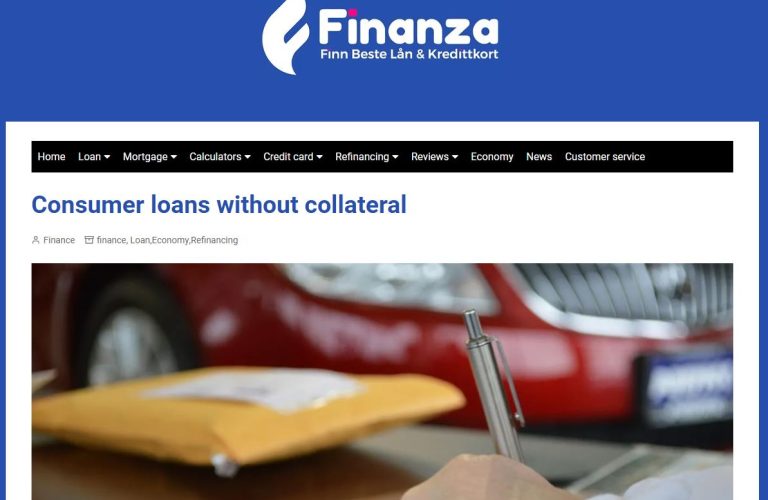Unsecured personal loans are a form of debt that you can borrow money from. The reason this type of debt is considered unsecured is because you cannot protect it from a lien on your assets, or get it back in the event you fail to repay the loan. In addition, an unsecured debt does not have to be repaid in the event of a bankruptcy, liquidation, or failure to meet the terms of the loan.
Peer-to-peer lenders
If you are looking for an unsecured personal loan, you may want to consider peer-to-peer lenders. Peer-to-peer lending sites like https://finanza.no/forbrukslan-uten-sikkerhet/ connect borrowers and investors directly. You can find a variety of options and loan amounts, from small business loans to debt consolidation.
In order to get an unsecured loan with a P2P lender, you must first determine your financial status. Many lenders will require you to pay an origination fee, which is an upfront payment. However, some platforms will allow you to pay your fees in increments of your loan.
Some peer-to-peer lenders charge a higher interest rate than traditional banks. Your credit score also affects the interest rate. It’s important to check with several lenders to find the lowest rates.
Lenders have to comply with state and federal laws, so you should check your local laws before you borrow. Additionally, you should be sure the website is secure.
If you have bad credit, you may be able to find a good deal with a peer-to-peer lender. Some online P2P lenders, like Even Financial, offer a free personal loan comparison tool.
Another popular type of financing with P2P websites is student loan refinancing. Students can refinance their existing student loans to lower their monthly payments.
Traditional banks
Traditional banks and credit unions continue to be a popular option when it comes to unsecured personal loans. They offer a variety of lending options, as well as the ability to make recommendations that will fit your needs.
Unsecured loans are usually accompanied by a lower borrowing limit and higher interest rates. Those wishing to obtain a loan from a brick and mortar bank should consider the advantages and disadvantages.
Using a traditional bank can mean more fees and a slower approval process. A credit union, on the other hand, is a not-for-profit financial institution that provides members with a better rate of return.
The best online lenders often offer competitive interest rates. Some of them even offer live phone support and a faster approval process.
Brick and mortar banks may also have a more stringent set of requirements for borrowers, but they can provide personalized solutions for borrowers. Depending on the bank, they may even offer higher loan amounts to those who are already established customers.
Traditional banks are also leveraging new technology to offer their clients a more convenient experience. Many banks have streamlined their mobile offerings, while others have teamed up with fintech firms to offer innovative solutions.
Protected from discriminatory lending practices
There is a law on the books that says lenders must provide borrowers with a written disclosure describing their fees, interest rates, and other monetary terms and conditions. Lenders are also required to make their loan changes known to prospective borrowers at least a few days in advance. Also, borrowers have a three day cooling off period in which to decide if they want to exercise their rescission rights. Fortunately, borrowers who opt out within three days don’t lose their money.
The consumer protection bureau is the agency tasked with protecting borrowers from unfair practices. Its responsibilities include testing and evaluating loan products and practices, conducting unbiased research on lending technologies, and educating lenders and the public on best lending practices. In addition to its legal mandates, the bureau is also the agency that identifies and reports on racially discriminatory lending practices, in addition to the more mundane issues of bad faith and wrongful foreclosure.
For example, it was only recently that the Consumer Financial Protection Bureau referred a handful of cases to the Department of Justice for its attention. One of those cases involved BancorpSouth’s explicit race-based denial policy for credit card accounts, which amounted to hundreds of dollars a year in extra costs to African-American consumers. That said, CFPB found that the company’s denials were merely the tip of the iceberg – there were plenty of African-Americans denied credit cards that had been denied by similarly qualified non-Hispanic whites.
